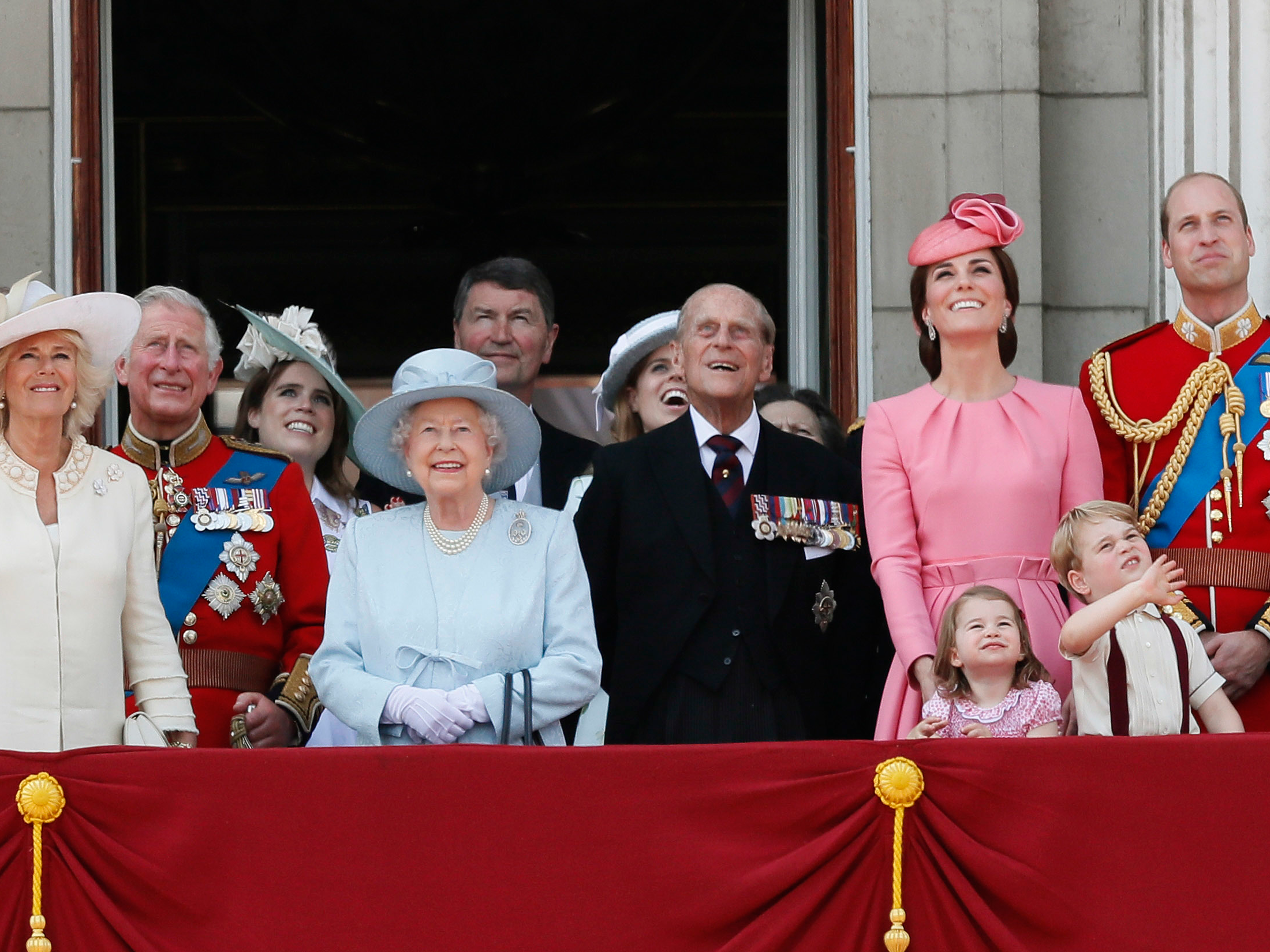- Royal watchers have debated the future of the British monarchy since “Megxit” and Prince Andrew’s departure last year.
- While royal expert Marlene Koenig told Insider “the monarchy is not going anywhere anytime soon,” it isn’t impossible to imagine Britain without a monarchy.
- If Britain were to abolish the monarchy, the royal family would likely have to give up property belonging to the Crown Estate – including Buckingham Palace.
- The younger generation of royals, including the Duke and Duchess of Cambridge, would have to follow Prince Harry and Meghan Markle’s lead and pursue private careers.
- Here’s what would happen to the royal family if Britain abolished the monarchy.
- Visit Insider’s homepage for more stories.
The British royal family has certainly had a tumultuous few months.
With Prince Andrew’s involvement in the Jeffrey Epstein scandal, “Megxit,” and now the heir to the throne having contracted the coronavirus, this recent turn of events begs the question of how long the monarchy can survive.
Royal experts previously told Insider that Prince Harry and Meghan Markle’s departure would “severely damage” the royal family in the long term, though there was debate over whether it could signal the end of the monarchy as we know it.
While some countries, including Greece and Bulgaria, abolished their monarchies through public referendum, royal commentator Marlene Koenig said the process is more complex than people think.
"It would take legislation, an act of Parliament, and signed by the Sovereign to end the monarchy," Koenig, a royal expert for History Extra, told Insider.
However, Koenig added that "the monarchy is not going anywhere anytime soon."
"There are no protests. The republican movement is small," she explained. "The political system is stable."
Nonetheless, that's not to say things couldn't one day change if there were to be a greater call for Britain to consider the future of the monarchy.
Here's what would happen to the royal family if the monarchy no longer existed.
The Queen would move out of Buckingham Palace - but she wouldn't have to give up all of her royal residences
Buckingham Palace has been used as the official working and living headquarters of Britain's monarchs since 1837. It has 775 rooms (many of these are for private use), and is used by the Queen to host state banquets and engagements with world leaders and government officials.
It is also a prime location for many milestone events, including royal wedding receptions, and the Queen's Trooping the Colour birthday parade each year.

The palace is currently open to visitors every summer, while Her Majesty vacations at her Scottish holiday home, Balmoral Castle. However, it could become a permanent tourist attraction if the Queen were to officially move out.
The palace is property of the Crown Estate, which Queen Elizabeth is the owner of as long as she is monarch. However, this would change if she was no longer Head of State, according to the Crown Estate's official website.
"The Crown Estate is though owned by the Monarch in right of the Crown," the website reads.
"This means that the Queen owns it by virtue of holding the position of reigning Monarch, for as long as she is on the throne, as will her successor."
Other residences that are Crown-owned that the Queen would have to give up include Windsor Castle (her Easter residence), and the Palace of Holyroodhouse (her Edinburgh residence).

As pointed out by Koenig, the Queen privately owns Balmoral Castle in the Scottish Highlands and the Sandringham Estate in Norfolk, where she spends every Christmas and New Year. Therefore, it's likely she would choose one of these as her new permanent residence.
This isn't an unusual circumstance for royal families from abolished monarchies, according to Koenig.
"Most of the former German royal families stayed in their homes," she said. "Some property was confiscated, others received compensation, including the Kaiser's family."
Prince William and Kate would follow Prince Harry and Meghan's lead and pursue financial independence
At the age of 93 and 71 respectively, it's possible that the Queen and Prince Charles, who is heir to the throne, would retire from public life if the monarchy was abolished.
It's more likely that the younger generation of royals, such as Kate Middleton and Prince William, would follow Prince Harry and Meghan Markle's lead and try to shape their own careers.
The Duke and Duchess of Sussex are yet to announce permanent plans for post-royal life, however, they have already held a handful of engagements in the US. Prince Harry gave a speech at a JPMorgan event in Miami, and both Harry and Markle made an appearance at Stanford University.

A public relations guru suggested to The Mirror that the couple could earn up to £1 billion ($1.3 billion) through corporate deals and brand ambassador roles.
Meanwhile, Markle has secured a voice-over deal with Disney for the new movie "Elephant."
Of course, it's just down to speculation as to whether Middleton and William would take on similar work to Harry and Markle if they were forced to pursue private careers.
They do have similar skill sets to the Sussexes. They currently run their own charity, "The Royal Foundation", where they often give speeches at charity dinners and events.
Like Markle, they also have experience with voice-over work. Middleton, William, Harry, and Markle co-narrated a mental health commercial directed by Richard Curtis last year.
Like Koenig said, it's unlikely the monarchy will be abolished
All that being said, it's worth remembering that royal experts say the likelihood of the monarchy being abolished is pretty low.
Although royal author Nigel Cawthorne previously told Insider that the monarchy will be "severely damaged in the long term" by "Megxit," most experts suggest that things will not change.
"The monarchy as an institution is all about the monarch and her direct heirs," royal editor Robert Jobson said. "The Sussexes are popular, but their involvement in matters of state are negligible."
Koenig echoed Jobson's comments. "The only members of the royal family that have a constitutional role are the Sovereign and the heir apparent," she said.
Therefore, while it appears unlikely, it's clear the royal family would still be able to survive - whether from private property or corporate deals - if the monarchy no longer existed.
Read more:

